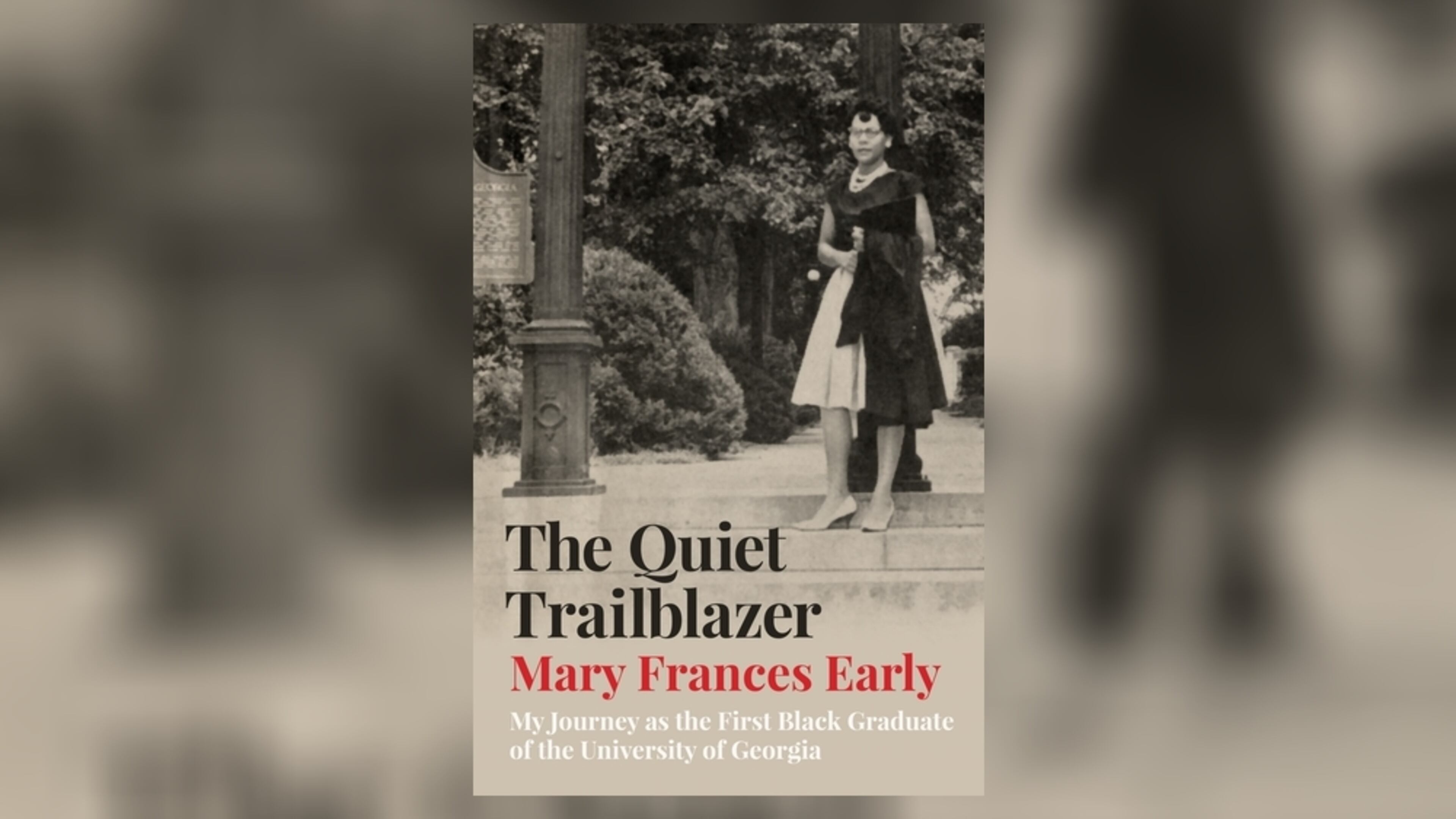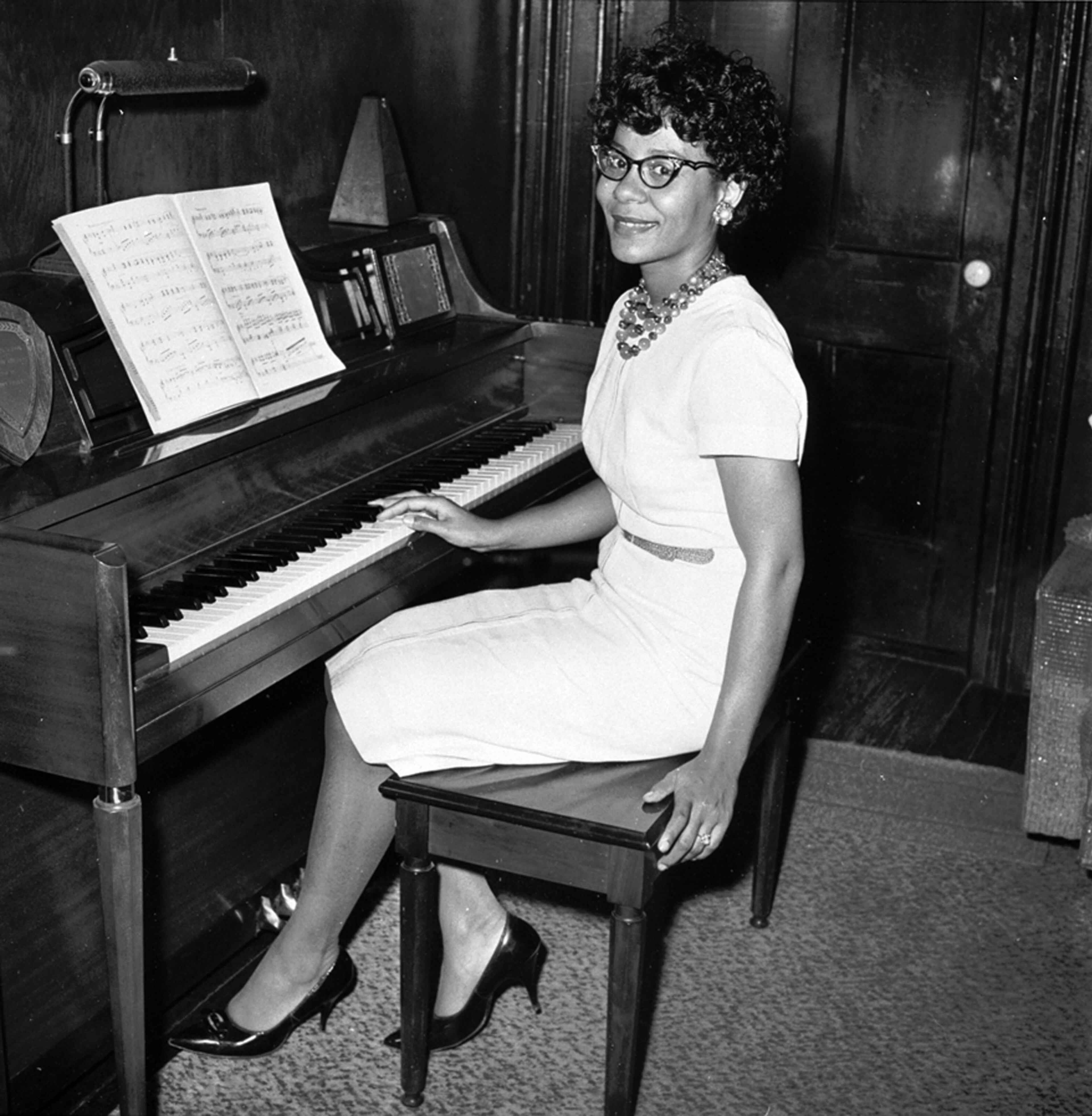UGA’s first Black grad tells her trailblazing story with autobiography

Mary Frances Early’s life has the arc of a compelling novel.
She grew up in a loving home in Atlanta, taught by her parents to be kind and humble. She dealt with tragedy as a child when her father died. She encountered and persevered through overt racism while becoming the first Black person to graduate from the University of Georgia in 1962.
Years later, after a successful career as a music educator, UGA made amends. The college awarded her the President’s medal, honored her as a trailblazer, renamed its College of Education after her.
She forgave. They celebrated.
Early decided a few years ago to tell her story. She released her autobiography last month, “The Quiet Trailblazer: My Journey as the First Black Graduate of the University of Georgia.”
Early, 85, discussed the book with The Atlanta Journal-Constitution. Here are excerpts from the interview.*
Q: What made you decide to write this book at this time?
A: I’m glad you said at this time because most people don’t wait until their 80s to write a book. I have felt for a long time because of a lot of misinformation, I felt I needed to have a written account from my perspective of what actually happened. I was such a busy person before the pandemic that I could never settle down. I started the writing, but it was sporadic. I decided if I’m going to do this, I need to do it now because my story is part of UGA’s history and it was forgotten.
Q: You dealt with segregation as a child. Can you talk about those experiences?
A: A lot of the things that happened growing up in the South and segregated Atlanta, that’s what propelled me toward being a civil rights activist. I was a quiet person. I saw what was going on and didn’t like it. I felt like I was powerless as a child to do anything about it. When I saw the riot (when Charlayne Hunter Gault and Hamilton Holmes integrated UGA in 1961), I’ve always been a good student and felt this is something I can do. ... I wanted to be part of the solution, and the solution was we needed to integrate as fast as we could.

Q: You described many difficult and ugly challenges you encountered at the University of Georgia. Was it tough to write about those experiences?
A: It was not easy at all. I did not make any friends when I was there in 1961 and 1962. On graduation day nobody spoke to me and it was like I was not there. At the beginning of my book, there is an epigram from Eleanor Roosevelt and it says ‘No one can make me feel inferior without my consent.’ That was my mantra then. ... I did not enjoy talking about the things that I described, but I felt I had to in order to let people know that this was not a happy experience.
Q: You mentioned people who helped you along the way whose names are now pretty recognizable, such as businessman Jesse Hill and (Vine City community leader and former) Hope Elementary School principal Ralph Long. It’s somewhat of a history lesson. Was that intentional?
A: Yes it was. I cannot say what I did I did alone. There were a lot of people who wanted to help and offered to help and people needed to know their names. ... Whatever we do, people are helping us. We stand on the backs of so many and that kind of unity is what will hopefully bring us through what is going on today.
Q: What do you hope people will glean from this book?
A: I hope they will see that it takes all of us to try and help solve the problems of the day and that was the journey that I took. .... There are young people who think this is a myth. That they can go where they want to go to school, they can go to any restaurant, they can go to any cultural events. Those things weren’t taken for granted in the 1960s and early 1970s. That’s what I’m hoping people will understand that everybody can do something and as Dr. King said and I quoted him in the book ‘The time is always right to do what is right.’
*Some responses were edited for brevity.



